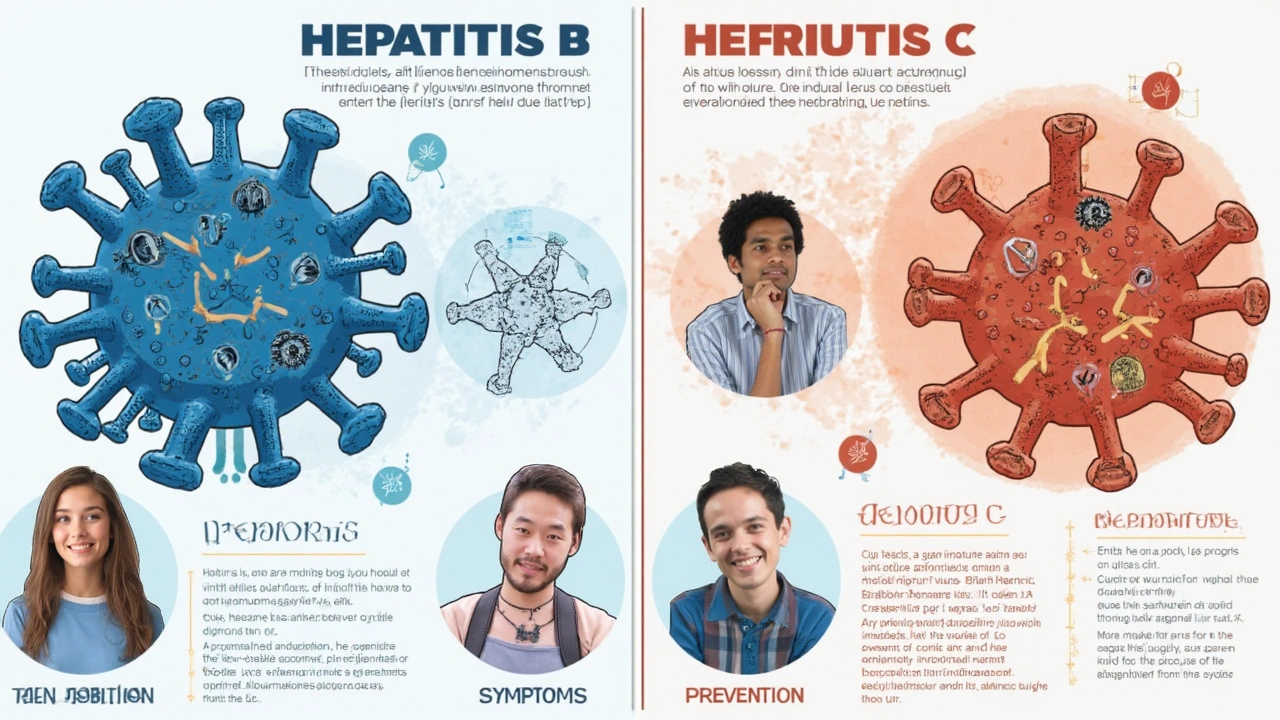Hepatitis Symptoms: What to Watch For
Hepatitis symptoms often start small—tiredness, mild stomach pain, or a change in urine color. Sometimes the first clear sign is yellow skin or eyes (jaundice). Hepatitis can be caused by viruses (A, B, C), alcohol, medicines, or autoimmune problems. Knowing common signs helps you act fast.
Common early symptoms include fatigue, loss of appetite, nausea, and low-grade fever. As the liver becomes more stressed you may notice dark urine, pale stools, itching, and abdominal discomfort under the right ribs. Chronic hepatitis can be almost symptom-free for years, then show up suddenly as weakness, swelling in the legs, easy bruising, or confusion—signals the liver is failing.
Different types act differently. Hepatitis A usually gives a short, flu-like illness and clears on its own. Hepatitis B and C can turn chronic and quietly damage the liver over decades. You catch A from contaminated food or water, B and C mostly through blood or sexual contact. That pattern helps your doctor decide what tests to run.
When to Get Medical Help
See a doctor right away if you get jaundice, severe belly pain, persistent vomiting, high fever, unusual bleeding, or confusion. Also get tested if you had recent risky exposure—unprotected sex, shared needles, or a new tattoo at an unregulated shop. Ask for blood tests that check liver enzymes (AST, ALT), bilirubin, and specific viral markers for hepatitis A, B, and C.
If tests show chronic hepatitis, follow-up matters. Your doctor may order imaging or refer you to a liver specialist. Early treatment can prevent scarring (cirrhosis) and liver cancer. For hepatitis B and C there are effective antiviral options; for A, rest and fluids plus avoiding alcohol are the usual path.
Simple Steps to Protect Your Liver
Vaccines: Get vaccinated for hepatitis A and B if you’re not already. Avoid risky blood exposure: don’t share needles, use barrier protection during sex when status is unknown, and pick licensed tattoo/piercing shops. Handle food safely to prevent A—wash hands and avoid questionable water when traveling.
Watch medications and alcohol. Some common drugs can harm the liver—check labels and ask your doctor before taking supplements or high doses of acetaminophen. Keep a symptom log (dates, foods, travel, new meds) to help your clinician find the cause faster.
If you suspect hepatitis, don’t wait. Early testing and simple lifestyle moves often make a big difference. Ask your doctor for testing and clear next steps—your liver will thank you.
Chronic Hepatitis B vs Hepatitis C: Symptoms, Risk, and Treatment Differences
Hepatitis B and C both attack the liver, but they’re not the same beast. This article dives deep into the differences, from how you catch them to what they do to your body, and what you can do about it. You’ll get real advice, eye-opening stats, and practical tips if you or someone you know is affected. There’s a lot more to these viruses than most people realize. Long term health depends on knowing what sets them apart.
Read more
